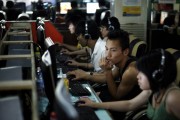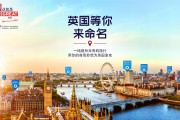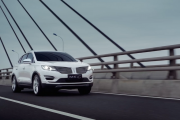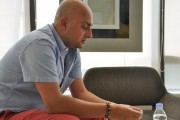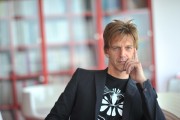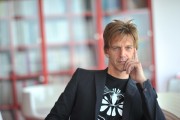
Appointed DDB Worldwide Chief Creative Officer in February 2011, Amir Kassaei is one of the most lauded creatives in the world. Amir and his teams are the recipients of more than 2,000 national and international awards, including 40 Cannes Lions in the past five years. Amir was named The Big Report’s ‘Top Chief Creative Officer’ in 2009, and has been selected as the The Big Won’s ‘Top 3 Chief Creative Officers’ for each of the last three years.
chinaSMACK spoke with him following the DDB Worldwide announcement that he would be establishing a Global Creative Hub in Shanghai and be part of driving the ‘Fit For Excellence’ creative leadership program in China.
This is part one of a two part interview with Amir packed with insights and experiences from one of the world’s top creatives.
First of all welcome to chinaSMACK, thanks for speaking with us. We were really interested to know about how you feel outsiders view the Chinese ad industry.
How the others are looking at it? I don’t know. I don’t have a clue. We have view on the Chinese market, that’s the only thing that I am interested in. We don’t care what the other people think.
What about your colleagues in the other DDB offices, how do they view the Chinese industry and the Chinese market?
I think that everyone is aware that China will dominate the world in the next 5 – 10 years. That’s a fact. The question is if they would know what will happen and how to analyze or differentiate. It differs from region to region and point of view to point of view. From the point of view of the old world (Europe and the US), they still think they have time, but I don’t believe it. From the point of view of Asia everyone is aware that China will be the dominating market, and I’m not talking about the size, I’m talking also, maybe in 5 years from now, in terms of innovation and creativity.
And for other top guys like you are you seeing that they are more eager to make a move into China for their careers?
No, because they are not as mad as I am. You have to be mad to do it. I think if you have a very clear background in terms of being US American or European and you are located somewhere and you have a home or something like that, then it’s much more difficult to adapt yourself to a new culture. As I don’t have a home, and I was all my life a refugee its much simpler to adapt to a new society.
You’ve already kind of answered another question that we were wanting to ask which is, is the future bright for the Chinese ad industry?
Yes, as I’ve said yes.
How would you view the current state of creativity in China?
I think it’s in the stage of development because we have to look at the history and it will take time till they, well how should I say, no it will take another 5 – 10 years before China starts to innovate by themselves and not copying the existing standards. And we have to make sure that we educate the young talent in our industry in a way that they understand that being creative in our industry is not about copying something else, but by innovating in their own Chinese way, so that’s our mission for the next 5 – 10 years.
Do you think that other agencies not just DDB are pushing a creative agenda quite hard right now?
As I said, I don’t care. I’m not interested in who is second after me. I’m only interested in winning the game, dominating the business. We have our own agenda, we have our own strategy, we have our own insights. I think that all the other guys, if they are looking at the world and they are calculating the dimensions in the right way they will have the same conclusions as we have. The question is what are the takeouts, how do you develop your own strategy. We have our own strategy and we believe that our strategy is right, lets see.
Do you think that brands in China are going to put more emphasis on creativity as well? This includes both foreign brands with marketing activities in China as well as local brands.
Yes, again at the moment if you look at it, it’s only about simulating an old system. One of the biggest challenges we have in the world, in the marketing world and if you can make it happen you are the king – building a global Chinese brand coming from China dominating the world. The first company or the first agency or the first marketer who can manage to do that will be in the forefront of the industry and that’s something which is lacking at the moment, building a Chinese brand on a global platform.
Do you see any brands that are making steps towards that?
Yes, I think that China is stepping to the new age of starting to innovate and be creative by herself and are looking at what is happening around her and it will take time and then you will see some big companies coming who will develop different products, different services, different benefits than the existing categories which we know from the old world in Europe and the US and if you have this kind of platform, you can build a brand based on that. Definitely.
Do you think that by linking creatives from across the globe that DDB will be able to more effectively target the Chinese consumer?
I don’t believe in the Chinese consumer. This company is based on a very very simple fact, that we were the inventor of the creative revolution. Finding or creating a relevant human truth, which is universal for anyone. And If you deliver it in a fresh way then the people will start to care about it and Chinese are human beings just like you and me. Yes you have to understand and respect the cultural background but in terms of communication and marketing, if you have a relevant truth it doesn’t matter whom you are communicating to. And in terms of linking the talent of DDB, that’s not only related to China. The world is getting more and more global so you have to think globally and to work as a team to unleash your potential, and that’s how we are working.
How much do cultural subtleties play into the campaigns that DDB are running in China?
A lot. It depends on the context of the market and of the brand. The formula or the core strength of DDB wherever you are working is always against the goal that we have, which is finding and creating a relevant truth and the relevant truth is a universal insight that is not related to just culture in China or Japan or Europe. If you’re doing that you’re doing a great job in terms of how you are defining creativity. Yes the creativity in China or the creative ideas that are coming from the Chinese office are a little bit different but there are great ideas from China you could apply to any market in any country.
Can you tell us a bit about the ‘fit for excellence’ program that you are involved in.
Well it’s been running already for one year. The goal of DDB is very simple; we want to be the most innovative communications company in the world . If you want to achieve it you have to go the extra mile. The extra mile means that you have to surprise your clients, you have to innovate on a day to day basis. You can only do that if you build a platform and give the possibilities to everyone and the freedom that they can start to be innovative by trying and making mistakes and that’s the goal of the ‘fit for excellence’ program. Looking at the challenges of the brands that you are working for, developing briefs and springboards, sharing it with the whole network and everybody has the opportunity to develop ideas and innovation against these challenges and then we are sharing the best ideas and best innovations with our clients on a global scale.
That was our next question which was ‘what is the reason behind this program’ but you’ve answered that so we’ll go on to…
Enjoying the pain. It’s like running a marathon. If you want to run a marathon in world record time you have to train every day.
What are the main challenges that DDB are facing in the Chinese market?
I think the challenges are almost the same for everyone in the market. It’s about understanding the Chinese culture, respecting them as human beings here and not underestimating their intelligence and the intellectual property that the Chinese people already have. For DDB its simple because our two most important values are creativity and humanity and respect towards human beings so I don’t have a worry. The challenges are that you have to grow quality in a substantial way as the market is growing in a fast and rapid way and you have to make sure that you are not losing the quality of the talent or educating the talent to get this quality that you need to solving client’s problems.
How are DDB retaining talent?
We have a lot of programs. We have a global program in terms of screening talent, educating talent on every stage, promoting talent to the right positions on a global scale. So if there is an art director sitting in Sydney who is interested to work in San Francisco we try to organise that this person can work in San Francisco inside the network. And making sure as leaders, and I think that it is the most important thing for people to follow you, to stay and work with you in the company then you would have to walk the talk. That means being at the forefront of the industry and then you don’t have to worry if the people will stay or not, that’s my opinion.
Are you clients excited about the leadership program that DDB are running?
It was developed with our clients. Our clients want to have global solutions; they want to have one brand, one voice all around the world, so they are asking for it and they are helping us and supporting us.
When do you think China is going to start winning a lot more awards?
It’s the wrong question. The goal of DDB is not to win awards, the goal of DDB is dominating the industry and being the most innovative company, because if you are the most innovative company the awards will come anyway and that’s the goal for China also as an office. I think if we are the dominating company in the ad industry in China you will be the most awarded anyway. Our goal is not winning awards. Our goal is solving business problems of our clients in a very innovative way.
Have you had any funny or amusing stories since you’ve been in China? Any cultural difficulties?
No, I’m an open minded guy. I’m a guest and I’m trying to behave like a guest. I’m like a child trying to understand it, trying to learn from them. There are a lot of things we can learn from the Chinese people and respect them for what they are. That’s what I’m trying to do, but I’m still at the beginning stage.
How long are you planning on being out here?
I’m living in a plane anyway. I don’t have a home like you have because I’m living on a plane. I have five homes everywhere in the world so I will spend a lot of time here based on the challenges that we have here and if the people want to have me more, that I would spend more time here I will spend more time here but that’s my job. I’m doing a global job so I’m on the run anyway. Again, it’s easy for me as a former refugee or as a permanent refugee to adapt to every culture. I’m at home here like in New York or Germany or Amsterdam or Korea.
I mean you can only do it if you have a life like me, because if you ask me ‘where is your home’ I don’t have a home. Home for me is a feeling. I can be at home here if the feeling is right. It makes a lot of things easier than for normal people. I’m not normal.
End of Part 1
